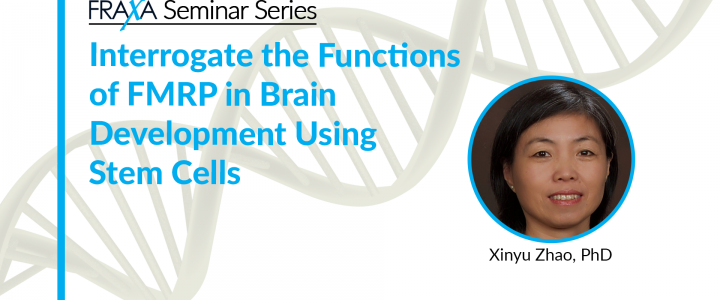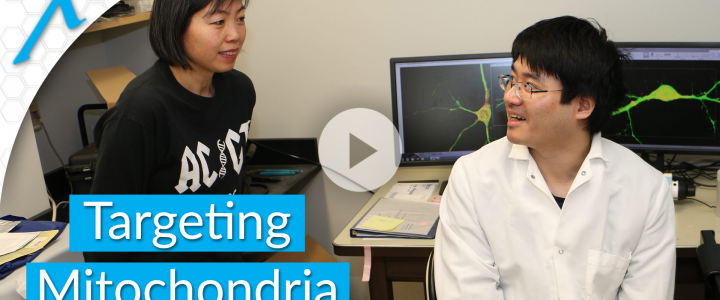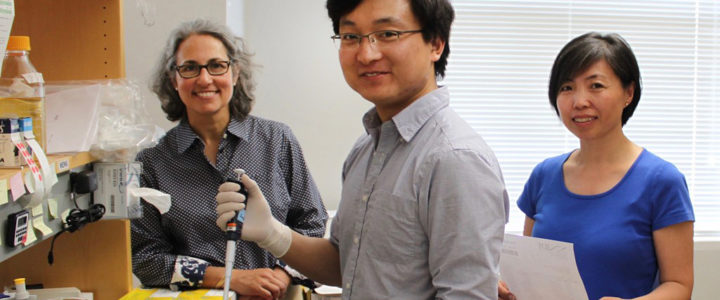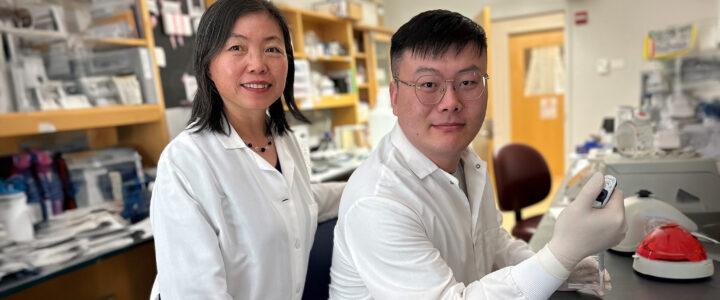Are there critical periods in Fragile X syndrome? Will treatment work in adults as well as in children? This team aims to answer these questions.
Read moreZhao, Xinyu
Identifying Cellular and Molecular Signatures in Human Neurons That Distinguish Fragile X Syndrome Patients with Divergent EEG Profiles

Why is it so hard to find the right medications to help people with Fragile X syndrome? Just as Fragile X affects individuals differently, medications do as well. This project aims to bring personalized medicine to Fragile X syndrome.
Read moreInterrogate the Functions of FMRP in Brain Development Using Stem Cells

Dr. Xinyu Zhao of the Waisman Center and Department of Neuroscience at University of Wisconsin-Madison joins us in this seminar to present Interrogate the Functions of FMRP in Brain Development Using Stem Cells.
Read moreTargeting Mitochondria in Human Fragile X Syndrome Neurons

FRAXA Research Foundation has awarded a $90,000 research grant to principal investigator Dr. Xinyu Zhao and postdoctoral fellow Dr. Minjie Shen at the University of Wisconsin. They are investigating whether drugs which boost mitochondria — which provide the energy for cells — could treat Fragile X syndrome. Dr. Zhao explains in this video.
Read moreSpectrum News – Newly Discovered Aspects of Fragile X Spur Next Wave of Drugs

Many drugs for Fragile X syndrome have failed in large clinical trials, but candidates that target new aspects of the condition may fare better.
Read moreFRAXA Research Grants Drive Big Investments in Fragile X

Most people know that FRAXA supports academic research at many institutions such as Harvard University, University of Pennsylvania, Massachusetts Institute of Technology, and Yale University. However, FRAXA is also working with more than 30 pharmaceutical companies around the world. Mike spends a lot of his time advising and collaborating with industry partners.
Read moreDeveloping IPS cells to Screen Drugs which can Reactivate the FMR1 Gene

With $146,000 grant from FRAXA Research Foundation over 2012-2013, Drs. Anita Bhattacharyya and Xinyu Zhao at the University of Wisconsin developed a new mouse model of Fragile X syndrome which will enable testing of gene reactivation and gene therapy approaches to treatment. They transplanted human Fragile X neural cells differentiated from induced pluripotent stem cells into brains of neonatal mice and then testing for FMR1 reactivation. In 2015, The John Merck Fund assumed support for this work with a generous grant of $750,000 to the scientists. Results published.
Read more
